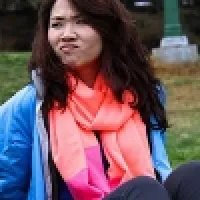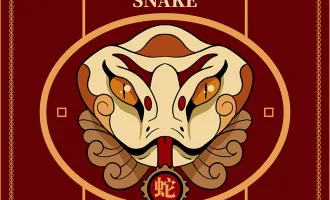Science and Literature Collide at Litquake 2013
“You know what it is? It’s a golden handcuff with the key thrown away,” wrote John Steinbeck of San Francisco. Oscar Wilde echoed this sentiment, noting, “Anyone who disappears is said to be seen in San Francisco. It must be a delightful city and possess all the attractions of the next world.”
Writers and booklovers have long been drawn to our foggy City by the Bay. Unsurprisingly, it is now home to the annual literary festival dubbed Litquake, the largest (what) on the West Coast. What began in 1999 as a daylong series of free readings in the park has evolved into a week-long cultural celebration.
Events include seminars in the library and tales of comical debauchery in cafés, ultimately culminating in a boozy closing night Lit Crawl. This year’s Litquake took place October 11-19.
Doctors and Patients/Medicine and Literature
By Yi Lu
Editor
Although medical professionals have a rich history of writing and publishing beyond their disciplines, fewer physicians have tried, and succeeded, in making their mark in fiction. On October 14, UCSF students, staff, and fellow community Litquakers packed into the Book Club of California to hear three physician-fiction writers speak at “Doctors and Patients/Medicine and Literature,” an event co-hosted by the UCSF Medical Humanities Group.
After a short introduction, the evening opened with readings from the three headliners:
- Dr. Chris Adrian, a former UCSF resident in Pediatrics and a fellow in Pediatric Hematology/Oncology, read the opening of his latest novel, The Great Night, a reimagining of Shakespeare’s A Midsummer’s Night Dream taking place in San Francisco’s Buena Vista Park.
- Dr. Louise Aronson, Associate Professor of Geriatrics at UCSF, read two interconnect excerpts from her first collection of short stories, A History of the Present Illness, which immersed the audience into the pace of life on the wards from both a doctor’s and a patient’s perspective.
- Dr. Jason Karlawish, Professor of Medicine at the Perelman School of Medicine, University of Pennsylvania, read from his debut novel, Open Wound, on the complex lifelong relationship between an ambitious surgeon and his most famous patient, a young illiterate fur trapper.
Throughout the rest of the evening, all three authors talked about the place of medicine in fiction, as well as the imaginative power of fiction and narrative in medicine. “Imagining how I can care for someone, even if it’s not real, changes how I practice,” Adrian said.
When asked why she chooses to write fiction, Aronson distinguished between “truth” with a little “t,” and “Truth” with a capital ‘T.” While the former demands timeliness and context, the latter, embodied in fiction and other creative works, can transcend time and place.
Adrian put it a bit more earthily, “I’d rather write about magic ponies than a 67 year-old in a Volvo.”
Poetry and Science: A Shared Exploration
By Jenny Qi
“Scientists need to be tuned into our writing colleagues, or we’ll miss the universe,” declared Dr. Bruce Miller during a presentation on his research of Alzheimer’s disease. He cited observations about the disease written by Gabriel García Márquez long before scientists began to study it.
The sciences and humanities are often pitted against each other as two distinct cultures, noted this year’s UCSF Artist-in-Residence and renowned poet Jane Hirshfield, who introduced the event. But as the presenters at this event proposed, science and art have a lot more in common than we think. Both are observations of the world around us, and each can inform the other.
The first half of the event included scientific presentations by Drs. Marilu Gorno-Tempini, Virginia Sturm and Bruce Miller. To a packed auditorium consisting primarily of Litquake folks, the scientists discussed their research in language cognition, the neuroscience of emotion and the impact of disease.
Following were poetry readings by Jane Hirshfield, geologist-writer Forrest Gander, UCSF’s own David Watts and former US Poet Laureate Kay Ryan.
In keeping with the science theme, Hirshfield read a poem about a loved one with Alzheimer’s disease, how “his thoughts have turned against him like crows against an injured of their kind.” She remarked afterwards, “I didn’t realize how many poems I had that touched on science,” reinforcing the idea that perhaps science and humanities are not so separate after all.
A collaboration between Litquake and the UCSF Memory and Aging Center, the “Poetry and Science” event was held in the Gladstone Institutes on October 16th.
Choose your own bacchanalia with Lit Crawl
By Jenny Qi
Nearly 100 free readings spread over three phases (aka hours). Hipster glasses on every corner of the Mission (even more than usual); enraptured audiences in consignment shops and police stations and dance clubs; there’s something for everyone at the intellectual bacchanalia that is Lit Crawl.
Lit Crawl events ranged from an open mic against the murals of Clarion Alley to pop science readings about food to cultural celebrations infused with the pungent burning of incense. Oh, and lots of readings about sex, because what else do people think about on a Saturday night?
My fellow attendees and I ended up selecting readings based on a combination of novelty, geographic convenience and coin flipping.
Phase 1 led us to Stage Werx Theater for “The Vent,” which is a fabulously diverse storytelling series held monthly at this theater. I entered as Mosa Maxwell-Smith told the audience about her hilarious failed attempt at “unleashing her inner sex goddess.”
In stark contrast, science fiction writer Jeff Greenwald told a heartwarming story about meeting his childhood hero Arthur C. Clarke, who scribbled all over his stories with a red pen and concluded, “You still have about a million words to write, but you’re just about where I was at fifteen.”
We headed towards the Beauty Bar next for “Hot & Heavy: Fierce Fat Girls on Life, Love, and Fashion.” The women’s stories about their paths to body acceptance were heartbreaking and funny and uncomfortably thought provoking — everything a Lit Crawl reading should be.
By the time we reached Laszlo Bar for Lit Camp’s “The First Time,” the venue was packed. The Make-Out Room had a line out the door. Our subsequent trek down Valencia led us to colorful Casa Bonampak for the Los Días de Los Muertos Celebration. Poets, including San Francisco Poet Laureate Alejandro Murguía, read to the quiet soundtrack of Spanish guitars, while volunteers burned incense and painted faces.
My advice for next year’s attendees? Caffeinate and learn how to teleport.



